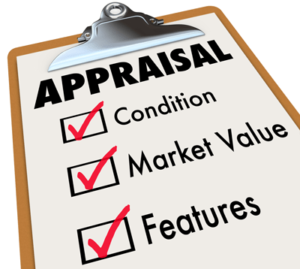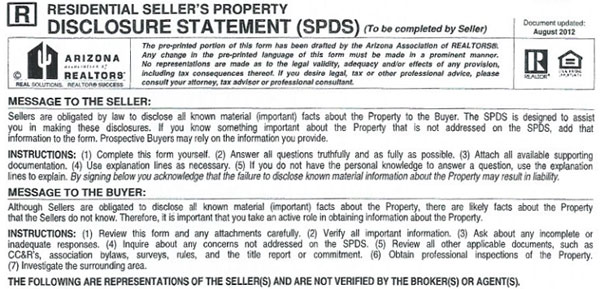
Home Sellers FAQ Part 3 of 3
Do you know your obligations as a home seller? Should you be aware of them of even if you are not planning to sell? Will your house appraise? What do you have to disclose to a buyer? Out of all the questions that get asked, there are a few that stick out as the most important. The following are the 3 most critical questions you need to know the answers to before you sell your property.
Will my house appraise?
Besides a home inspection discovering some major issues, nothing can stop a sale dead in its tracks faster than a low appraisal. Appraisals are usually the last major hurdle to clear in a transaction. Finding out 10 days before you are supposed to close that the sale can’t go through with its current contract price is nothing short of frustrating.
So how do we make sure to avoid this situation to begin with? In short, it comes down to pricing the house properly. It’s no secret that home seller want to get the most money from their sale as possible, and my job is to help with that. There are LOTS of things to do in order to make sure you get the top market value. However that doesn’t mean you can sell at an unreasonable value either. More than likely the home will still need to pass an appraisal.
Besides listening to your Realtor and reviewing recently sold comps, you can always opt for a pre-appraisal before listing the property. A pre-appraisal is done by a licensed appraiser, just like who will complete the buyer’s appraisal. With a pre-appraisal some of the loan criteria is missing which makes it slightly more affordable than a loan appraisal. This is a great tool for hard to price and unique properties. Not only will it set a baseline of what it will appraise for, but you can use it to justify your asking price to your buyers.
 On a national level, about 1/3rd of property sales are completed in cash, which do NOT require an appraisal. However, many of those are investment properties, portfolios, or ultra-luxury. So unless you are selling into one of those categories, its closer to 5% of sales are cash transactions and 95% of us will have to deal with an appraisal when selling.
On a national level, about 1/3rd of property sales are completed in cash, which do NOT require an appraisal. However, many of those are investment properties, portfolios, or ultra-luxury. So unless you are selling into one of those categories, its closer to 5% of sales are cash transactions and 95% of us will have to deal with an appraisal when selling.
So what happens when the appraisal is too low? A buyer may choose to walk away from the transaction unscathed, or make up the difference between the appraised price and the contract price – not something most buyers are excited to do. Depending on how far apart, a seller may agree to reduce the sales price to the appraised price to “save” the transaction. In the event an appraisal comes in way above the contract price, there’s nothing to be done. As a seller, you cannot go back and get a higher price out of the buyer.
What do I have to disclose to potential buyers?
A seller must disclose any important information about the property that may affect the property’s value or the buyer’s decision to purchase the property. There are some exceptions to this I’ll get to in a moment.
This doesn’t mean the seller must disclose every little thing to the buyer, such as a scratched tile, or a paint chip as these don’t affect the price. Additionally, the buyer has the opportunity to ask any questions to the seller, in which as the seller should answer truthfully, even if you do not deem it important but the buyer does.
The seller does NOT need to do research to find any answers or perform any investigation to find items to disclose. You are also not responsible for reporting issues you should have known, but did not know. It is based on “to the best of your knowledge…”
To help you disclose properly, you will complete a document called the Seller Property Disclosure Statements. (S.P.D.S, or SPUDS). The S.P.D.S. is a 7 page document from the Arizona Association of Realtors that asks the most common and appropriate questions about the property in which you should disclose to the buyer. It is then given to the buyers to review and sign.

Arizona Seller Property Disclosure Statement (SPDS or SPUDS) are used for a seller to disclose information to potential buyers.
While disclosure is based on the honor system, lying on the disclosures is a very bad idea. Items you know about very well may come up in an inspection and the buyer may realize you knew all along. Even worse, if a seller does conceal an issues and thinks they are in the clear once they close and the sale is final, they are wrong. If the buyer finds out you lied or concealed an issue they can sue you for damages which can even include reversing the sale.
Sellers are NOT obligated to disclose the following:
-Site of a death (natural, homicide or suicide)
-Felonies committed at the property
-If property had anyone who lived in it with AIDS or any other disease that cannot be passed through common occupancy
-If property is located within vicinity of a sex offender
What’s my role as the owner in selling process?
There’s a lot more than meets the eye when selling a home, which is exactly why you hire a professional. Even with a licensed Realtor selling your home, the owner still has a few things to do to keep things moving smoothly.
Maintaining the property is a major responsibility of the owner when selling a house. This means all the usual things you do to keep the property in working order – cutting the grass, keeping clean, etc. However when your house is for sale, it’s imperative to keep it as clean as possible, so you should be spending even more time than normal getting the house organized and clean for the showing process.
I can’t stress the importance of a clean house for showings. But on a lighter note, I’m reminded of a viral video that’s been making the rounds lately on just this. If you haven’t seen it’s pretty hysterical.
Secondly, making sure the property is available for showings. For vacant homes, this usually isn’t an issue. If you are still living in your house when it’s for sale, you need to accept that you will have buyers coming through your house at odd and inconvenient times. Being flexible is key. As much as it’s nice to get a 48 hours’ notice, if the right buyer happens to be in the neighborhood and wants to stop by in 20 minutes, you should consider being flexible and allowing them in. You never know if they will get a second chance to see your house.
The third thing to remember is to communicate. If you have certain needs, unanswered questions, limitations, or requests, speak up! Your agent only knows what you tell them. A seller that hides an issue from an agent is only hurting themselves. It’s best to be very transparent up front if you have any unique circumstances, or special needs. In fact, your needs might not be as unique as you think, so be open with your agent on your personal situation and they will provide solutions.
The exclusion to this communication rule is with communicating with buyers or buyers agents directly. It’s best to limit this type of conversation as there is usually very little good that comes out of it. You may give up unnecessary information which can cost you money, liability, headaches, or de-rail a transaction. This is why you hired an agent, so make sure you are going through them to protect your interests.

Comments are closed.